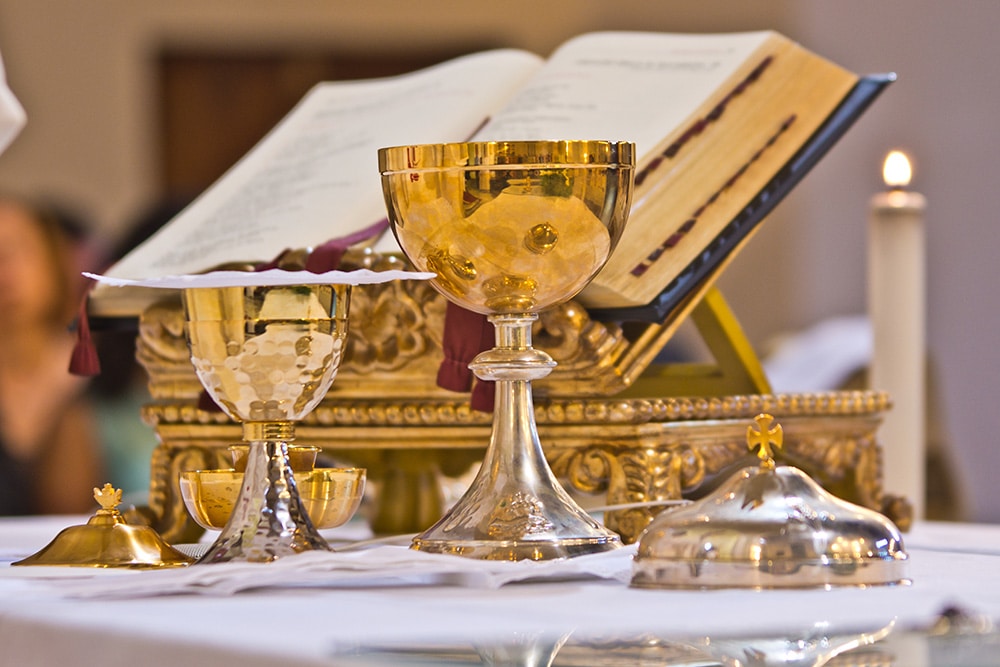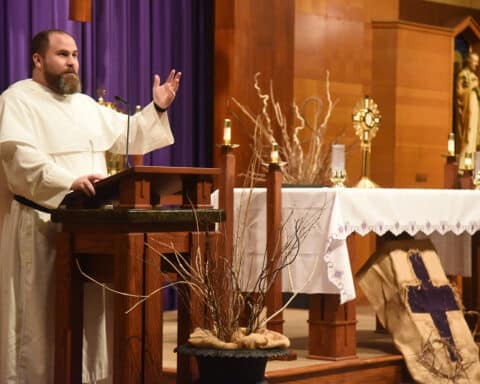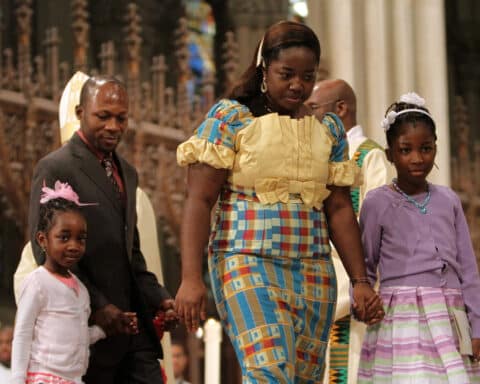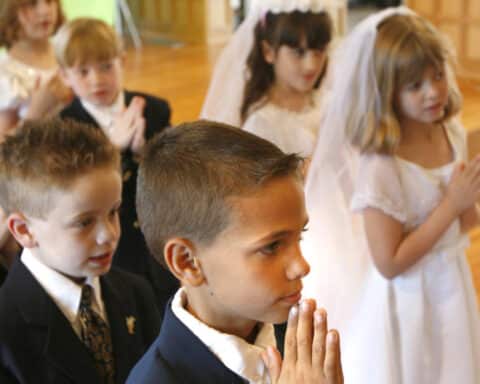
— Peggy Deegan, via email
Answer: Simply put, the creed is not a complete catechism. Hence, we find many things missing in the Sunday creeds. There is no mention of the Ten Commandments, the sacraments, an exact listing of the books of the Bible, the parts of the liturgy and their meaning, etc. The Nicene and Apostles Creeds were written at a time of great debate about the divinity of Christ and the proper understanding of the Holy Trinity. As such, they focus on those matters. The True Presence of Christ in the Eucharist was not widely debated at the time. Since the creeds are ancient documents and ancient parts of the liturgy, they cannot be simply amended without harm to liturgical principles.
In more recent times, Pope St. Paul VI published a document that, in English, is known as the “Credo of the People of God.” This is a more lengthy creed, and it does contain a section on the holy Eucharist and transubstantiation. It is too long to fully quote, but here are some highlights: “Christ cannot be thus present in this sacrament except by the change into his body of the reality itself of the bread and the change into his blood of the reality itself of the wine, leaving unchanged only the properties of the bread and wine which our senses perceive. This mysterious change is very appropriately called by the Church transubstantiation … the bread and wine have ceased to exist after the consecration, so that it is the adorable body and blood of the Lord Jesus that from then on are really before us” (No. 25).
This Credo composed by Pope St. Paul VI was not intended to be recited at the liturgy; it is simply too long. Rather, it was written to address directly disputed or poorly understood matters of our day. In more recent times, the Catechism of the Catholic Church was written to address your concerns as well.
Regarding the teaching on transubstantiation, there is also a growing appreciation that simply repeating the teaching is not enough. Our teaching must be reflected in our celebration of the sacred liturgy. Since the holy Eucharist is the True and Real Presence of Christ among us, it follows that reverence and a spirit of awe should permeate the liturgy. But too often parishes, clergy and parishioners exhibit casual dress and manners, which do not give the impression that there is anything special here. We do well to teach more emphatically the True Presence of Christ, but we will also do well to review our manner of distributing holy Communion and exhibiting a reverential awe in the presence of so great a Lord.
Our risen bodies
Question: I have often wondered what actually happens when we die, especially in view of what happened to Jesus and Mary and one of the prophets. These three took their earthly bodies with them into heaven. But if we have to wait until the end of the earth, or the end of humanity, to be reunited with our bones that have been in the grave for perhaps thousands of years, what will we be doing until then?
— Carolyn Moening, via email
Answer: Prior to the Last Judgment, our souls go to God for our individual judgment and are in heaven, purgatory or hell. Our bodies lie in the earth. You note some exceptions to this in Jesus, Mary, Elijah and likely Moses. All the souls in heaven are with God in joys unspeakable and glories untold. When our body rises, it will be truly our body, but we ought not simplify this rising purely after the manner of our own understanding as if God would be searching for our right tibia or left ulna. Further the body that rises will be a glorified human body that has qualities we do not now possess. God will supply what is needed to cause our body to rise. The Scriptures say this will occur in an instant, in the twinkling of an eye at the last trumpet (cf. 1 Cor 15:52). And while the Scriptures do speak of our tombs being opened, this may be allegorical or literal. But in all cases, God will mysteriously accomplish what he has promised.
Msgr. Charles Pope is the pastor of Holy Comforter-St. Cyprian in Washington, D.C., and writes for the Archdiocese of Washington, D.C. at blog.adw.org. Send questions to msgrpope@osv.com.





